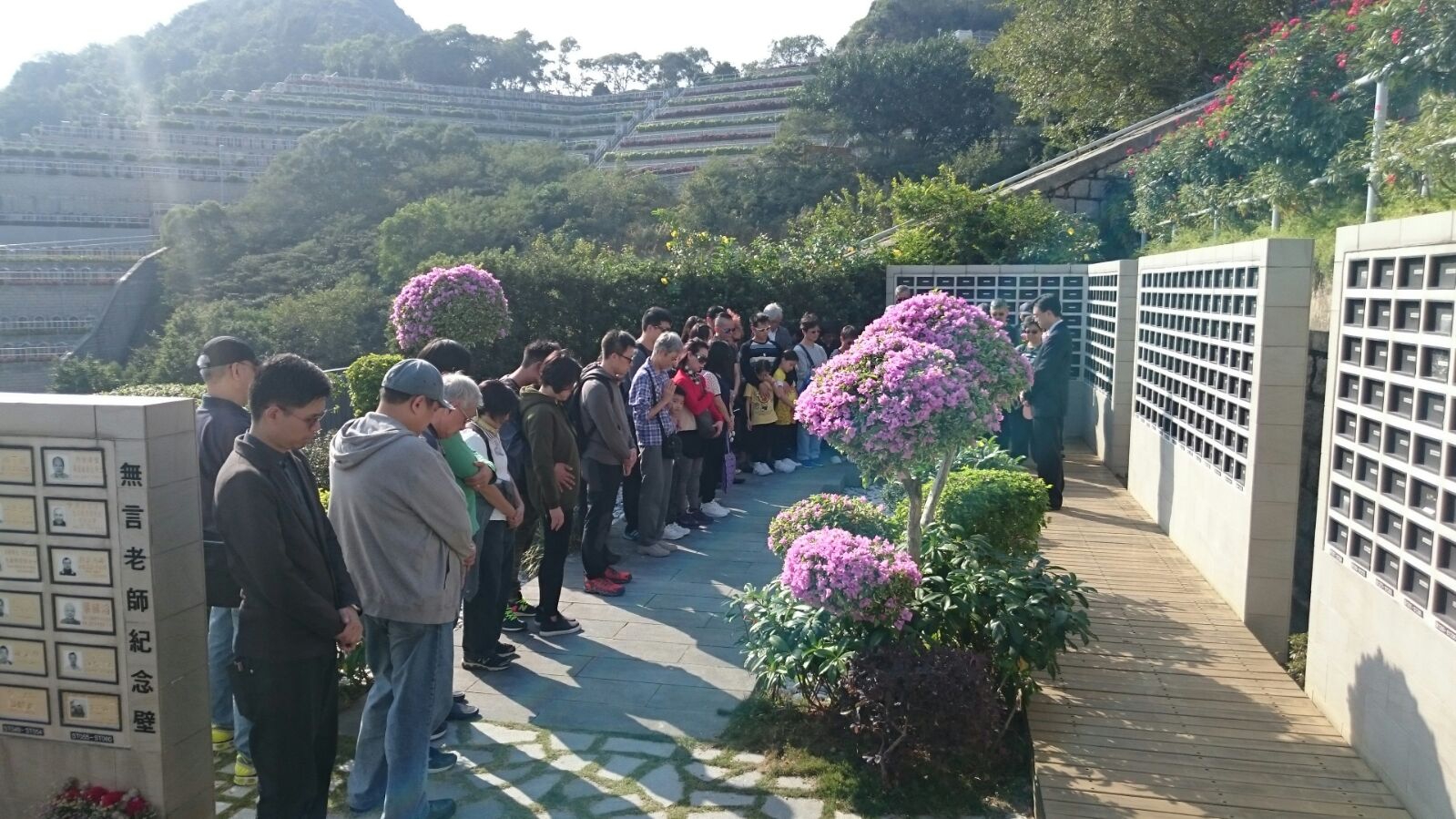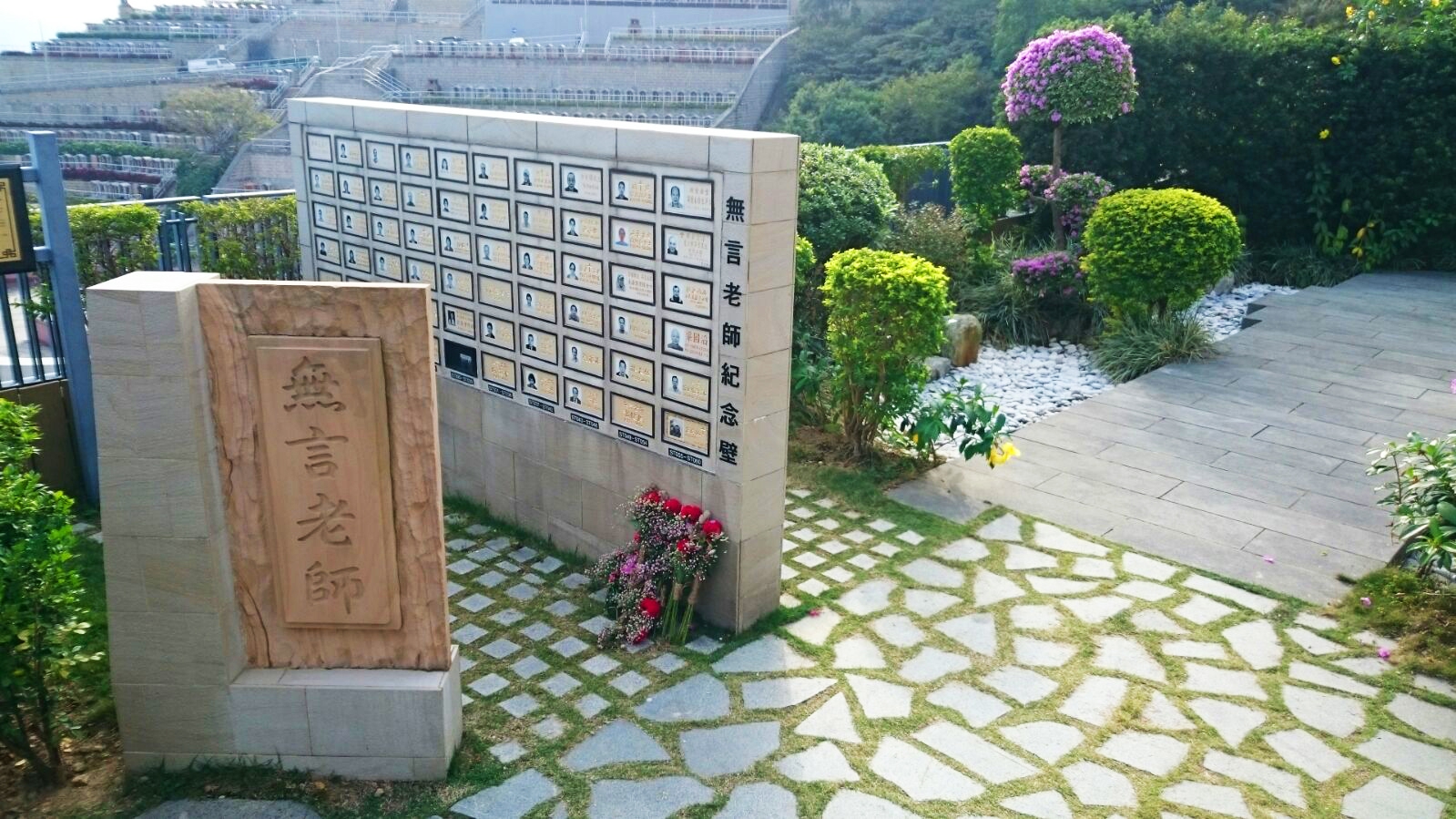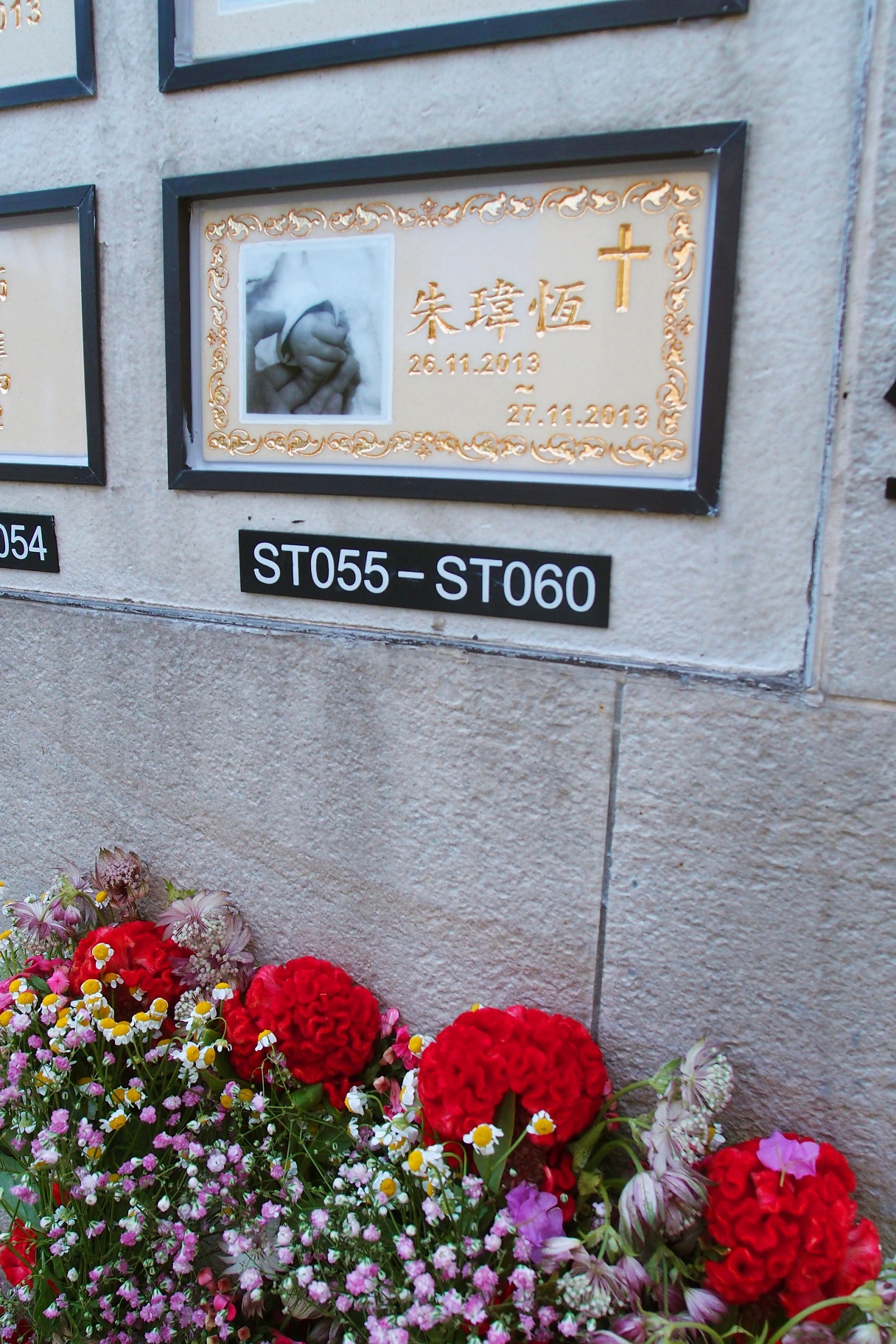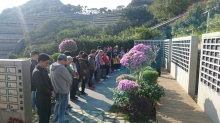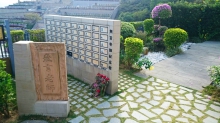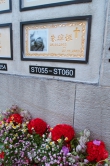CUHK
News Centre
CUHK Medical Students Tribute to the Youngest Silent Teacher
The Chinese University of Hong Kong (CUHK) held an Ash Scattering Ceremony to recognize the selfless contribution of the 14 ‘Silent Teachers’ of the academic year on 28 November. The ‘Silent Teachers’ body donation programme encourages the public to donate bodies after death to medical education and training. Among the 14 was Andrew Chu, the youngest body donor since the launch of the ‘Silent Teachers’ programme, who led a short but meaningful life of 10 hours with an incomplete skull.
The ceremony was well-attended by about a hundred of family members of the ‘Silent Teachers’ and CUHK medical students, where a medical student shared what he had learnt and how thankful he was to the ‘Silent Teachers’. Respective family members scattered the ashes on the Garden of Remembrance as a final farewell.
Andrew Chu had a birth defect of an incomplete closure of the skull and he survived for only 10 hours after birth. This birth defect is a rare congenital defect known to be caused by abnormal levels of Vitamin A or other chemicals during pregnancy, leading to abnormal development of the neural tube, formation of abnormal brain structures and failure of skull closure. Andrew’s body was donated to CUHK as ‘Silent Teacher’ by his parents and part of his body has now been used to make teaching specimens to enhance student understanding of the rare disease.
Professor CHAN Sun On, Assistant Dean of the Faculty of Medicine, expressed his sincere gratitude to all donors and their family members at the ceremony, ‘Your decision to participate in the body donation programme offers an invaluable learning experience to the medical students. For example, Andrew has left a precious remain for us that is crucial to the understanding of congenital neural tube defect. We are most thankful to Andrew’s parents because we understand that it was a difficult decision to make to donate their beloved newborn baby. We believe that this decision will arouse deeper thoughts and reflection on life and death among our medical students and the wider society.’
CUHK launched the ‘Silent Teachers’ body donation programme in 2011 to encourage the public to donate bodies after death to medical education and training. In addition to offering students precious medical training opportunities, the body donors also help them understand the importance of humanitarian values in medical practice.
With the increasing awareness of life and death education and the promotion of life planning before death, the body donation programme has received enormous support from the public. The number of bodies received increased from 4-5 per year to more than 80 per year; whereas the registration of body donors also grew exponentially from about 10 per year to more than 3,000 per year. This was made possible with the greater acceptance by general public of the programme. In view of the enthusiastic response and the trend towards increasing registrants at younger ages, online registration is now available on the website of the School of Biomedical Sciences.
The ‘Silent Teachers’ body donation programme could not succeed without the support of various partners. In particular, The Board of Management of The Chinese Permanent Cemeteries (BMCPC) established a memorial wall at the Garden of Remembrance in Junk Bay Chinese Permanent Cemetery, and sponsored CUHK to purchase new equipment for improving anatomy teaching and increasing coffin storage. Recently, BMCPC supported the Faculty of Medicine and the Department of Social Work of CUHK to conduct a one-year research on the local culture of body donation, with the aims to enhance the quality of the body donation programme and to understand the experience and perception of donors’ family members before and after joining the programme.
For more information about the ‘Silent Teacher’ body donation programme, please visit our website www.sbs.cuhk.edu.hk/bd/.
Family members of the 14 silent teachers of the year and CUHK medical students attend the ash scattering ceremony to express their thankfulness.
A dedicated memorial wall established at the Garden of Remembrance in Junk Bay Chinese Permanent Cemetery to recognize the selfless contribution of silent teachers to medical training and research.


